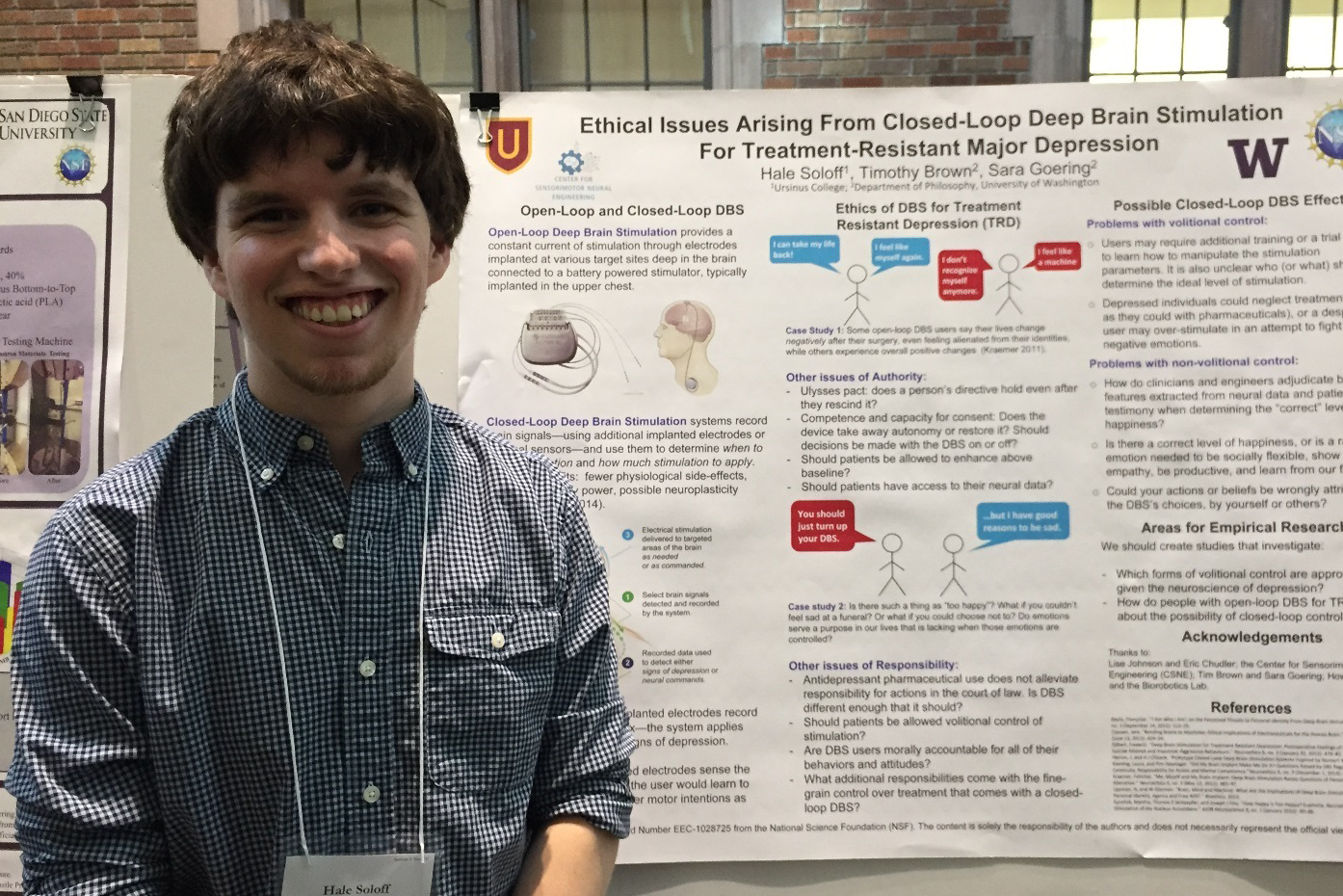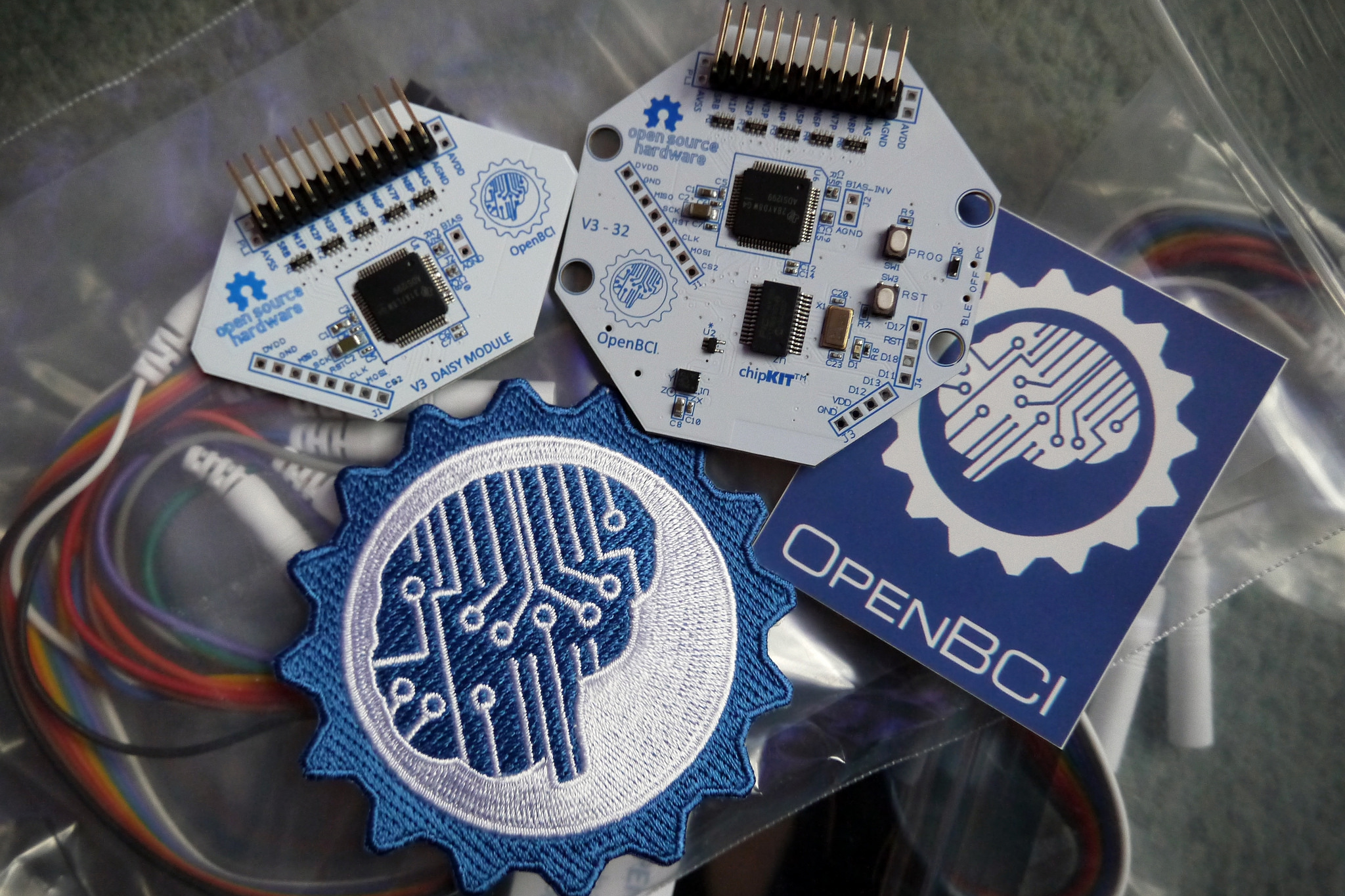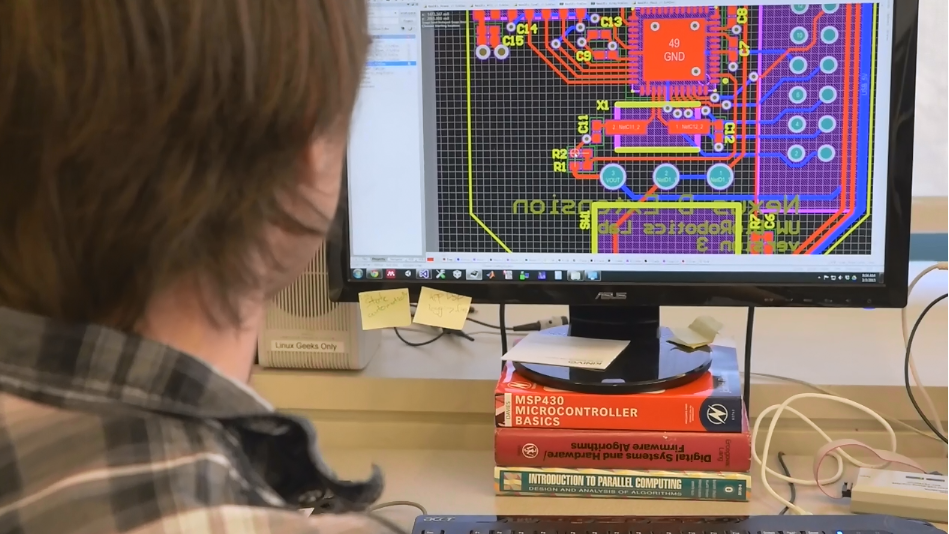August
21st
, 2015

Hale Soloff, my mentee for the Summer, just completed the CSNE’s Research Experience for Undergraduates program. Over the course of 10-weeks, Hale and I conducted research on the ethics of user-controlled Deep Brain Stimulation (DBS) for people with clinical depression. It was excellent working with Hale, and I look forward to seeing how he uses the tools he picked up during the Summer while he finishes up his final year at Ursinus College. Congratulations, Hale! Also, congratulations to all of the CSNE’s summer students! Read more about their work here.
More →
July
20th, 2015

UW’s Critical Gaming Project invited me to write a short piece about tools for designing video games you can play using Brain–Computer Interfaces, or Neurogames. I’m excited about the end result! Here’s an excerpt of the full article:
Neurogames are a new breed of games that make use of brain–computer interfaces (or BCIs); these games use electrical signals generated by the player’s body, from their muscle or brain surface activity, as input. All of these signals are collected using sensitive electrodes on the surface of whatever body part you want to collect data from. It’s up to the game designer (that is, you) to decide what kinds of inputs to use and what to use them for; and, right now, it’s a new frontier.
More →
April
15th, 2015

An excerpt from UW Today:
Essential tremor, a nervous system disorder that causes a rhythmic shaking in the hands, affects an estimated 10 million Americans and millions more worldwide. Deep brain stimulation, essentially a pacemaker for the brain, has been approved to treat essential tremor. But there is not an existing system that automatically provides electrical stimulation only when needed.
More →


